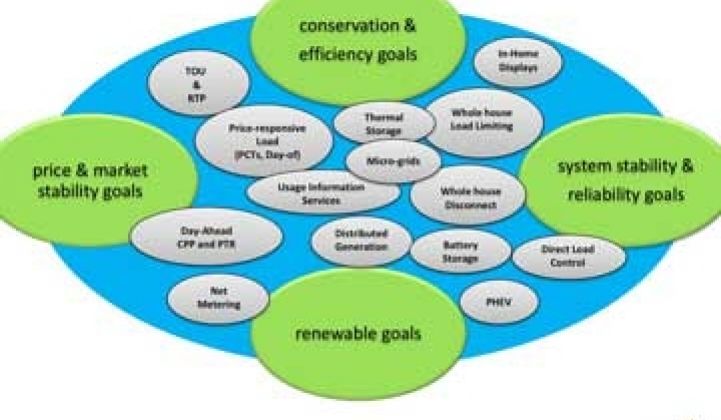It's not just about doing a pilot and then collecting data off of smart meters. Utilities looking to manage data coming from smart metering must have a multi-tiered plan in place, Larsh Johnson, director and CTO of eMeter, said during a GTM Webinar on Wednesday moderated by Chet Geschickter, Smart Grid Analyst with GTM Research.
While many people argue that smart meters are an end point and represent just one part of the smart grid, Johnson said that they should be thought of as a strong starting point that allows for greater intelligence below the substation level.
That intelligence, however, does not come without planning. "It's only getting worse, or better, depending on your viewpoint," Johnson said in regards to the amount of information that will be relayed through devices in the home area network, including smart thermostats, solar panels, smart appliances and electric vehicles.
Data management is also not just about managing the information on the back end -- increasingly, it's about offering services so that customers can get a handle on their own usage.
Johnson noted that Toronto Hydro has time-of-use pricing for its 700,000 customers. But before it rolled out its ambitious program, the progressive utility pushed the information to the web to give their customers time to get oriented to their own power usage and how changes would affect their daily patterns.
That is in stark contrast to many of the smart meter rollouts that have looked at consumer web portals only as an afterthought, with implementations coming online months or even years after the first meters have been installed. Baltimore Gas & Electric was faulted by Maryland's Public Service Commission for not having a robust enough consumer education and engagement plan in its smart grid proposal, which was rejected by the PSC, but a revised plan is currently under consideration.
"We're increasingly seeing the importance of web portals," Johnson said. "We're talking about a lot of change, so don't neglect change management."
The reality of smart meters is that for most customers, the actual savings are small -- but those moderate savings on the level of the individual customer can have a huge impact on the grid as a whole, so it is important not to oversell the savings that can be seen immediately to consumers.
MDM should be just the core application of any data platform -- a jumping-off point to integrate various systems and business practices down the road. Johnson said that ultimately, many applications should be able to use the information that is generated to perform functions from mitigating network loss and implementing demand response to customer engagement and locating outages in real-time.
As far as nifty applications to engage customers, Johnson felt that those were still on the horizon. But that hasn't stopped the MDM giant from releasing a home energy management system, Energy Engage.
While the data will offer the most benefit to the utility, Johnson said the tide does seem to be turning with consumers. "You have to look at how you're going to provide new information and also provide customer benefits," he said. "We're starting to see customers actually be successful."



